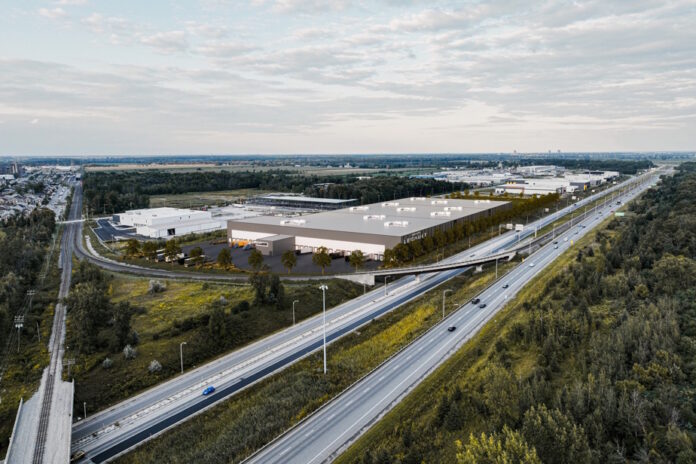There is nothing left of the Mascouche airport, closed in 2016. On September 12, the groundbreaking took place for the third and final phase of the CentrOparc, a business district which has the ambition to join a urban development oriented towards public transport (DOT).
“On paper, the CentrOparc is complete,” reveals Philippe Despins, director of economic and strategic development at the City of Mascouche. After Saint-Hubert, Desjardins, Quilicot and several other Quebec flagships, it is the turn of Mondou, owned by the Legault Group, to settle in this business park built on the site of the former airport.
The company’s new warehousing and distribution center, which specializes in the manufacturing, distribution and sale of pet food and treats, will occupy nearly 400,000 square feet, the equivalent of nearly seven football fields – a project worth more than $90 million. This new LEED building, as well as a smaller neighboring building whose owner will be revealed later this fall, will occupy the last available spaces on the site of the former airport.
In addition to its strategic position near Montreal and along highways 640 and 25, the site developed by developer Montoni attracts businesses because of its innovative character.
This aspect has also greatly appealed to the owners of Mondou, who will contribute to the project by having a dog park built on their land. “For us, it has always been very important to feel good at work, just as we feel good at home,” says Marie-France Legault, director of corporate affairs for the Legault Group.
Since 2015, urban plans following DOT principles have been developed by the City of Mascouche, in order to create a multifunctional and sustainable urban living environment in the station area, including the airport site. However, these are currently being reviewed, particularly due to the decreasing popularity of commuter trains.
“It’s a bit utopian to think that 100% of transport will be done by public transport. We are therefore trying to revise our planning,” explains Mr. Despins. The new vision is to create a complete living environment where citizens can live, but also work, have local services and a public transportation offer.
In addition to the site of the former airport, the City acquired various lands in the CentrOparc sector, including a wooded park. New streets have been laid out, cycle paths will be developed, and the public transport offer will be improved. “Ultimately, someone who lives in the heart of the residential neighborhood, within 1.5 km, more or less, will be able to go down the street and go to work,” he reveals.















